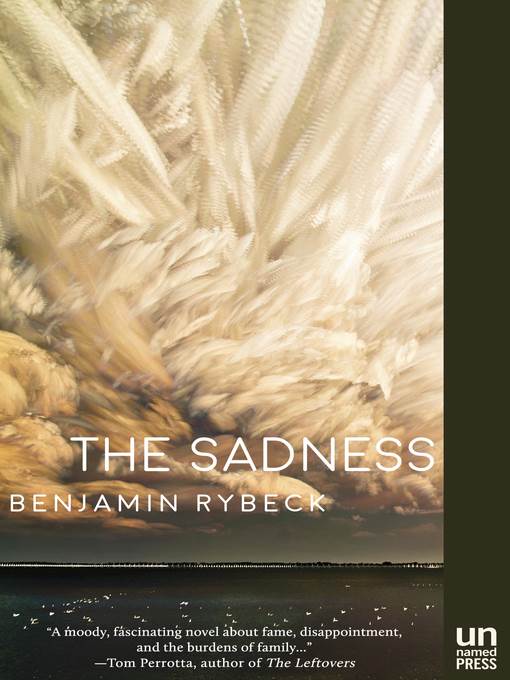
The Sadness
کتاب های مرتبط
- اطلاعات
- نقد و بررسی
- دیدگاه کاربران
نقد و بررسی

April 4, 2016
You don’t have to be a movie buff to appreciate Rybeck’s debut novel, but it helps to recognize the references to Hitchcock, Bergman, and others in this story featuring two fictional films made in Portland, Maine. The first film, a cult favorite titled Land Without Water, launches the career of hometown-girl-turned-B-list-Hollywood-starlet Penelope Hayward, who returns to the town for the annual festival honoring the film. The second is The Glazen Shelves, the brainchild of cinema nerd and aspiring writer/director Max Enright, still unfinished after 61 drafts. Max is searching for his film’s star, Evelyn Andersson, who has mysteriously disappeared, when Max’s twin sister (and Penelope’s former best friend), Kelly, returns to Portland. Homeless and unemployed, Kelly is searching for the father that abandoned the twins alongside their wild hippie mother when the twins were three. The mother died years later while away on what she claimed was a job interview. To recount interrelated stories of the siblings and the films, Rybeck uses a variety of forms including letters, a diary, and imaginary interviews. A few scenes over-reach but the characters experience memorable moments of self-awareness. Often humorous, sometimes touching, newcomer Rybeck’s tale of youthful woe portrays a generation full of promise as it runs aground. Agent: Greg Messina, Linwood Messina Literary Agency.

April 1, 2016
A brother and sister reunite in their Maine hometown for a few days of reckoning with their messy pasts, stalled presents, and art films. Max and Kelly are twins who don't have much to show for themselves as they exit their 20s. Kelly dropped out of college in Arizona and can't hold a steady job, while Max's biggest accomplishments are an unfinished film, The Glazen Shelves, and an obsession with its lead actress, who's gone missing. Kelly has returned to Portland because she has a line on her absent father, who might be able to assist her financially, but Max is disinclined to help--he's more fixated on the city's festival celebrating Land Without Water, a high-atmosphere, critically acclaimed film that was made in Portland. Perhaps that film's female lead, in town for the festival, can help Max center himself? These siblings are a troubled pair and, in Rybeck's hands, less cohesive and engaging than they have the potential to be. Max is meant to be socially inept, but at times comes off as borderline sociopathic, between incidents that involve near-kidnapping and public nudity. And Kelly, supposedly the centering figure, largely mopes through the proceedings. Such flaws, combined with some plodding prose and clumsy figurative language--"her skin looks stitched together from money" is an odd way to say somebody appears wealthy--make this novel feels as unfinished as Max's magnum opus. That's unfortunate, because Rybeck is an interesting thinker about movies, and the back and forths about film have the nerdy enthusiasm of a Criterion Collection commentary. The novel takes its title from a theory Max got from his mother about how a great movie feels "like the director was stranded on an island and starving and lonely and that cinema was the only way of escape." It's a nice concept for the nature of creative inspiration. But execution matters too. An overly clunky attempt to merge earthbound family drama and high-toned artsiness.
COPYRIGHT(2016) Kirkus Reviews, ALL RIGHTS RESERVED.

























دیدگاه کاربران